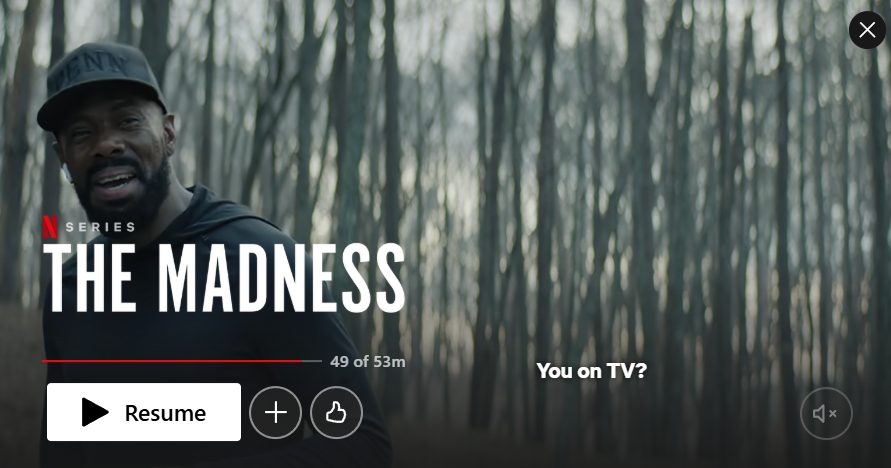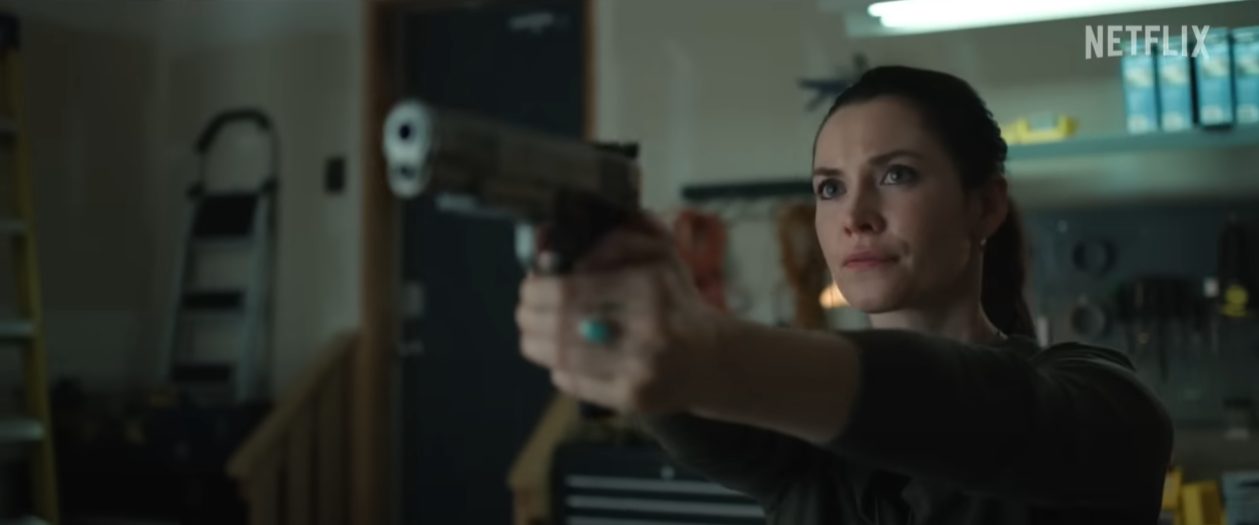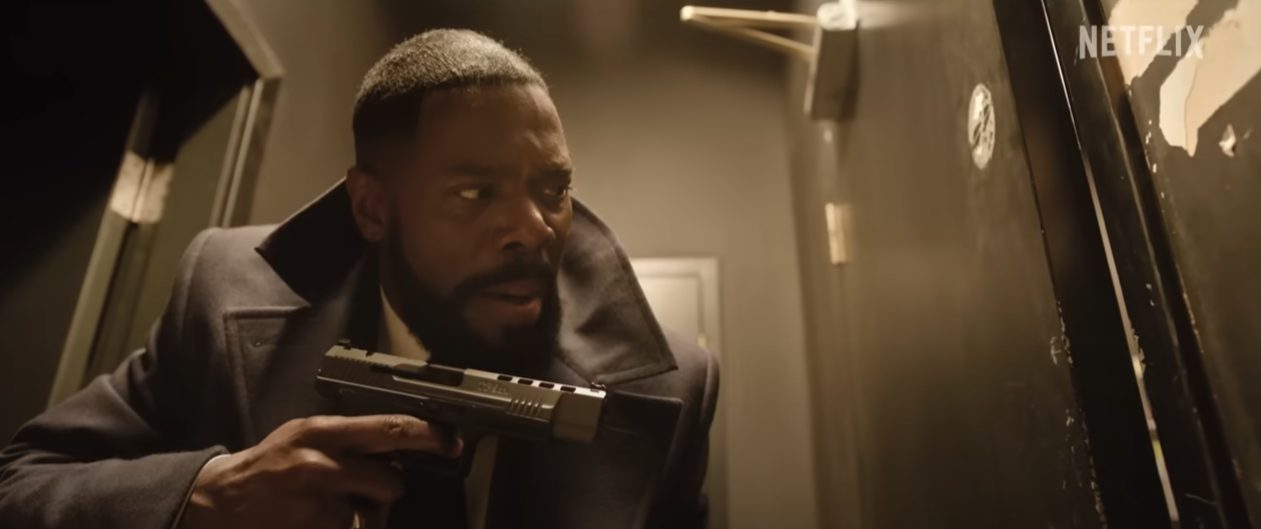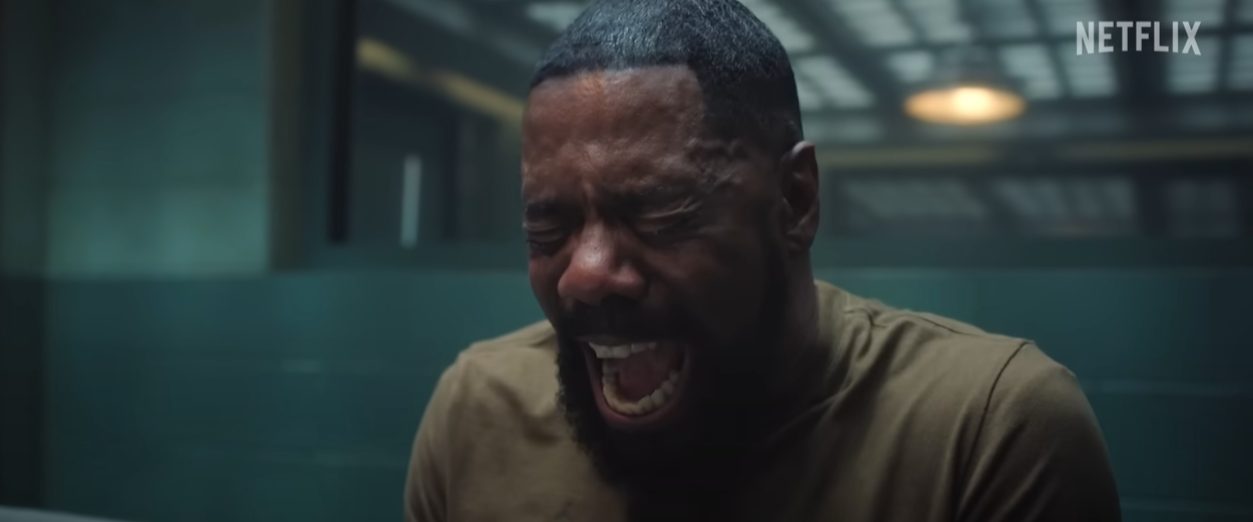Plot Summary

The Madness is a political thriller-meets-psychological drama starring Colman Domingo as Muncie Daniels, a former CNN pundit seeking peace in the Poconos to write his book. Instead, he stumbles upon a gruesome murder and is quickly framed for the death of a white supremacist named Mark Simon. From there, the show spirals into a conspiracy-laced manhunt, disinformation warfare, and a personal reckoning with justice, race, and family.

Plot Recap: Episode-by-Episode Highlights
Episode 1: Muncie finds Mark Simon’s dismembered body. Before he can alert the authorities, he’s chased by masked men and barely escapes. The situation escalates quickly as fabricated reports claim Simon’s body was found in Muncie’s apartment.

Episodes 2–4: Muncie becomes a fugitive, unraveling the connections between Mark Simon (aka “Brother14” of the neo-Nazi group The Forge) and a shadowy corporate entity called Revitalize. He suspects tech mogul Stu Magnusson but hits dead ends.

Episode 5: Muncie wires up to confront Magnusson, only to see him shot mid-conversation. Julia Jayne, a fixer for Revitalize, is revealed to be orchestrating several deaths to tie up loose ends.

Episodes 6–7: Muncie gets help from allies like Lucie and Kallie to retrieve incriminating evidence. Julia’s laptop and Mark’s pen drive expose a network of crimes committed under the guise of political lobbying and environmental deregulation.
Episode 8 (Finale): Muncie confronts Rodney Kraintz, the true mastermind. Kraintz admits framing Muncie because it was convenient—he was Black, present at the scene, and publicly controversial. Muncie ultimately chooses not to kill him. Later, Bobby Woods, an enraged former associate of The Forge, kills Kraintz in a vigilante act.
Ending Explained
The Conspiracy: Kraintz used Revitalize and The Forge to manipulate politics. When Mark Simon tried to back out of a deal, Kraintz had him killed and pinned it on Muncie to protect the operation.

Julia Jayne’s Role: She executed Kraintz’s dirty work, including killing Simon and Magnusson. Her laptop contained the digital paper trail that exonerated Muncie.
The Forge’s Collapse: Lucie hands over crucial evidence to the FBI, resulting in a massive takedown of the group. However, some like Bobby Woods escape—one of whom later kills Kraintz.

Muncie’s Moral Choice: Despite holding Kraintz at gunpoint, Muncie walks away. He refuses to perpetuate the violence or become what the system expects—a Black man seeking revenge. This decision underscores the show’s core message: power can corrupt, but choosing peace over vengeance is a radical act of self-preservation.
Family Fallout: Muncie’s relationship with his wife Elena (who was critically injured by Julia) and son Demetrius remains strained. His son nearly kills Kraintz himself, but Muncie stops him just in time—symbolizing a break in the generational cycle of trauma.
Analysis
Disinformation and Media Control: A central theme, shown in how easily public perception is manipulated to paint Muncie as a murderer.
Race and Visibility: Muncie’s high-profile, outspoken identity made him a target. The show critiques how society weaponizes identity to divert attention from deeper corruption.
Moral Complexity: Almost every major character wrestles with compromise, survival, and justice. No one is purely good or evil—just trapped in systems of influence.
Review
Critical Reception: The show received mixed to positive reviews. Critics praised Colman Domingo’s performance and the ambition of the script, though some felt the pacing was inconsistent.
Audience Reactions:
- Positive: Viewers appreciated the depth of the conspiracy, the emotional weight of Muncie’s arc, and its relevance to today’s sociopolitical climate.
- Negative: Some criticized the finale for being too restrained, wanting a more explosive conclusion rather than the quiet moral resolution.
- Trending Themes in Reviews: “Topical,” “gripping,” “slow burn,” “socially charged,” and “thought-provoking.”
Rotten Tomatoes Audience Score: 78%
IMDb Rating: 7.4/10
Top Praise: Colman Domingo’s performance and the nuanced portrayal of disinformation and racial bias.
Top Complaint: The conspiracy plot occasionally became convoluted or over-explained.
Conclusion
The Madness is less about who killed whom and more about how truth, power, and race intersect in a media-saturated world. It’s a thriller that resists the easy payoff, opting instead to ask: What does justice look like in a rigged system? And can choosing not to retaliate be the most radical act of all?




